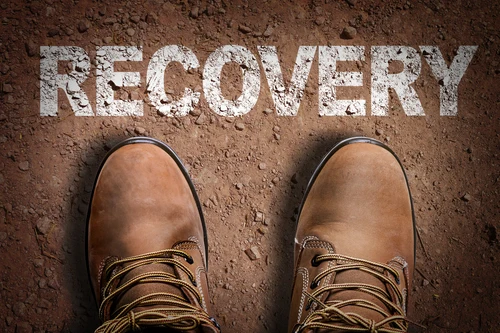When considering addiction treatment, one of the most common and important questions people ask is: Does health insurance cover rehab? For individuals and families in North Carolina seeking help for substance use disorders, understanding how insurance works for rehab is crucial.
At Carolina Recovery, we understand that figuring out insurance coverage for rehab can feel overwhelming. Our experienced admissions team can help you verify your insurance and choose the right treatment program. Contact our substance abuse treatment center today!
Does Health Insurance Cover Rehab?
Health insurance is designed to make healthcare more affordable and accessible-including treatment for substance use disorders and mental health conditions. Today, most health insurance plans do cover at least some portion of rehab services, thanks to federal laws that require insurers to treat addiction and mental health care similarly to other medical conditions.
Coverage can include a range of services, such as detoxification, inpatient residential rehab, outpatient treatment, therapy, and aftercare. However, the exact amount covered, the types of services included, and your out-of-pocket costs will depend on your specific insurance plan and provider.
Federal Laws That Protect Your Coverage
Two major federal laws have transformed insurance coverage for addiction treatment.
The Affordable Care Act (ACA)
Passed in 2010, the Affordable Care Act requires all health insurance plans sold on the Health Insurance Marketplace to cover substance use disorder treatment as an “essential health benefit.” This means that if you have an ACA-compliant plan, it must include coverage for addiction treatment services, including both inpatient and outpatient care.
The Mental Health Parity and Addiction Equity Act (MHPAEA)
This law mandates that health insurance plans offering mental health and substance use disorder benefits must provide coverage that is comparable to their coverage for medical and surgical care. In other words, insurers cannot put stricter limits on addiction treatment than they do for other types of health care.
Because of these laws, most private insurance plans, employer-sponsored plans, and even Medicaid and Medicare now include addiction treatment as a covered benefit.
What Types of Rehab Does Health Insurance Cover?
The types of rehab services covered by insurance can vary.
Detox
Medically supervised detox is often the first step in addiction treatment. Insurance usually covers detox, especially when it is deemed medically necessary for withdrawal management.
Inpatient/Residential Rehab
This involves staying at a treatment facility for a period of time to receive intensive therapy and support. Most insurance plans cover inpatient rehab, but the length of stay and the amount covered can vary. Some plans cover 30, 60, or 90 days per year, while others may allow multiple stays if medically necessary.
Outpatient Rehab
Outpatient programs allow individuals to receive treatment while living at home. Insurance typically covers outpatient rehab, which can include partial hospitalization programs (PHP), intensive outpatient programs (IOP), and standard outpatient therapy. Coverage may be limited to a certain number of sessions per year, depending on your plan.
Medication-Assisted Treatment (MAT)
For certain substance use disorders, medication may be prescribed as part of treatment. Most insurance plans now cover MAT, including medications like buprenorphine, methadone, and naltrexone, as well as the required counseling and behavioral therapies.
Therapy and Counseling
Individual, group, and family therapy are essential components of addiction treatment and are covered by most insurance plans, often with a set number of sessions per year.
Aftercare and Relapse Prevention
Many insurance plans will also cover aftercare services, such as ongoing counseling or support groups, to help maintain recovery after completing a rehab program.
What Types of Health Insurance Cover Rehab in North Carolina?
In North Carolina, the laws and insurance practices reflect federal regulations, ensuring that substance abuse treatment is considered an essential health benefit. This means that whether you have private insurance, Medicaid, or Medicare, you are likely to have some level of coverage for addiction treatment.
Private Insurance
Most private insurance plans, including those purchased through the Health Insurance Marketplace, cover both inpatient and outpatient rehab. The extent of coverage-such as the number of days or sessions allowed-will depend on your individual policy. For example, Blue Cross Blue Shield of North Carolina and UnitedHealthcare are major insurers in the state that cover various addiction treatment services.
Medicaid
North Carolina Medicaid covers both inpatient and outpatient rehab, but the specifics depend on the managed care organization (MCO) administering your benefits. Typically, Medicaid covers one inpatient rehab stay per year, with the possibility for more if medically necessary. Outpatient services are also covered, usually with a set number of sessions per year.
Medicare
For those eligible for Medicare, Part A covers inpatient rehab if hospitalization is required, while Part B covers outpatient therapy and counseling. Coverage is generally limited to a certain number of days or sessions, and services must be deemed medically necessary.
How Much Will Health Insurance Pay for Rehab?
While health insurance will generally cover rehab, several factors will determine how much is covered and what you may need to pay out-of-pocket:
Your Specific Insurance Plan
Every plan is different. Some plans have higher deductibles, co-pays, or co-insurance rates. Coverage limits-such as the number of days in inpatient rehab or the number of outpatient sessions-also vary.
In-Network vs. Out-of-Network Providers
Insurance companies typically cover more of the cost if you use a treatment center that is in their network. Out-of-network rehab centers may be covered at a lower rate or not at all, which can significantly increase your out-of-pocket costs.
Medical Necessity
Insurance companies often require proof that rehab is medically necessary. This usually means a healthcare provider must assess your condition and recommend treatment. Some plans require pre-authorization before you can begin rehab.
Type and Level of Care Needed
The type of treatment, such as detox, inpatient, or outpatient, can affect coverage. More intensive or longer-term programs may require additional authorization or have stricter limits.
Frequency of Treatment
Insurance plans may limit the number of covered rehab stays or therapy sessions per year or over a lifetime. However, if you relapse, many plans will cover additional treatment if it is medically necessary.
Verifying Insurance Coverage for Rehab
Wondering, “Does my health insurance cover rehab?” Here are some steps you can take to verify your coverage.
Review Your Policy
Read your insurance policy documents, focusing on the sections about behavioral health, mental health, or substance use disorder treatment. Look for details on coverage limits, co-pays, deductibles, and in-network providers.
Contact Your Insurance Provider
Call the customer service number on your insurance card and ask specific questions about rehab coverage. Find out what types of treatment are covered, how many days or sessions are allowed, and what your out-of-pocket costs will be.
Verify Coverage with the Treatment Center
Reputable rehab centers in North Carolina have staff who can help you verify your insurance benefits. They can communicate directly with your insurer to determine exactly what is covered and help you understand your financial responsibility.
Get Pre-Authorization if Needed
Some insurance plans require pre-authorization for rehab services. This means your healthcare provider will need to submit documentation showing that treatment is medically necessary. Make sure this step is completed before you start treatment to avoid unexpected costs.
Choose an In-Network Provider
To maximize your benefits and minimize costs, choose a rehab center that is in-network with your insurance plan. In-network providers have agreed-upon rates with your insurer, which usually means lower out-of-pocket expenses for you.
Ask About Financial Assistance
If you have limited coverage or no insurance, many rehab centers offer sliding scale fees, payment plans, or financial assistance programs to help make treatment more affordable.
Common Questions About Health Insurance and Rehab
Will health insurance cover rehab after a relapse?
Yes, many insurance plans recognize addiction as a chronic condition that may require multiple rounds of treatment. As long as treatment is medically necessary, insurance will often cover additional rehab stays or therapy sessions, though there may be annual or lifetime limits.
Can I go to rehab without insurance?
Yes, you can still access treatment without insurance, but you will need to explore alternative payment options, such as self-pay, sliding scale fees, or financial assistance programs offered by the rehab center.
The Importance of Seeking Help
Seeking treatment for substance use disorder is a life-changing decision. Thanks to federal and state laws, most people in North Carolina can use their health insurance to access quality addiction treatment without facing overwhelming financial barriers. The key is to understand your benefits, verify your coverage, and work with a reputable treatment center that can help you navigate the process.
Contact Carolina Recovery Today
At Carolina Recovery, we understand that figuring out insurance coverage for rehab can feel overwhelming. Our experienced admissions team is here to help you verify your insurance, explain your benefits, and connect you with the right treatment program for your needs. We work with most major insurance providers and are committed to making recovery accessible and affordable for individuals and families across North Carolina.
If you or a loved one is struggling with addiction, don’t let concerns about insurance or cost stop you from getting help. Reach out to Carolina Recovery today to learn more about your options and take the first step toward lasting recovery.






